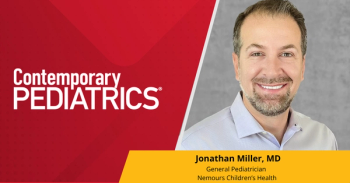
Homozygous familial hypercholesterolemia often untreated in children
Less severe cases of homozygous familial hypercholesterolemia often go undiagnosed and untreated, according to data presented at the AAP National Conference & Exhibition in Anaheim, California from October 7-11.
Children with homozygous familial hypercholesterolemia (HoFH) are often only diagnosed and treated early in severe cases, according to a recent study by the Family Heart Foundation.
The Family Heart Foundation completed an analysis from its CASCADE FH Registry. Based on patient data from the registry, diagnosed children with HoFH dealt with untreated low-density lipoprotein cholesterol (LDL-C) more often compared to adults with HoFH.
Results of the study were presented in a poster at the American Academy of Pediatrics (AAP) National Conference & Exhibition in Anaheim, California from October 7 to 11, 2022, titled, “Characterization of Children with Homozygous Familial Hypercholesterolemia from the CASCADE FH Registry.”
Findings indicated that patients developed cardiac disease at a median age of 8.9 years, but cardiac disease was reported in patients aged as young as 2 and 3 years. For the patients diagnosed around 2 years, curative liver transplant occurred at 4 years of age, and 8 years of age for the patient diagnosed when aged 3 years.
HoFH causes elevated levels of serum LDL-C, impacting the lives of children and adults. This rare genetic condition can lead to increased risk of premature atherosclerotic cardiovascular disease as early as the first decade of life. In some cases, physical findings will not appear with HoFH, meaning that lipid panel or genetic testing in needed for a diagnosis.
“Unfortunately, even routine screening between ages 9 and 11, as recommended by the AAP, is not the standard in the United States,” said Mary P. McGowan, MD, chief medical officer at the Family Heart Foundation and the study’s co-author. “There is a clear need to implement universal screening so that all children with HoFH and the less severe heterozygous familial hypercholesterolemia are consistently identified.”
Reference
Family Heart Foundation study shows some children with homozygous familial hypercholesterolemia miss out on decades of life-saving treatment. Business Wire. October 11, 2022. Accessed October 17, 2022.
Newsletter
Access practical, evidence-based guidance to support better care for our youngest patients. Join our email list for the latest clinical updates.








